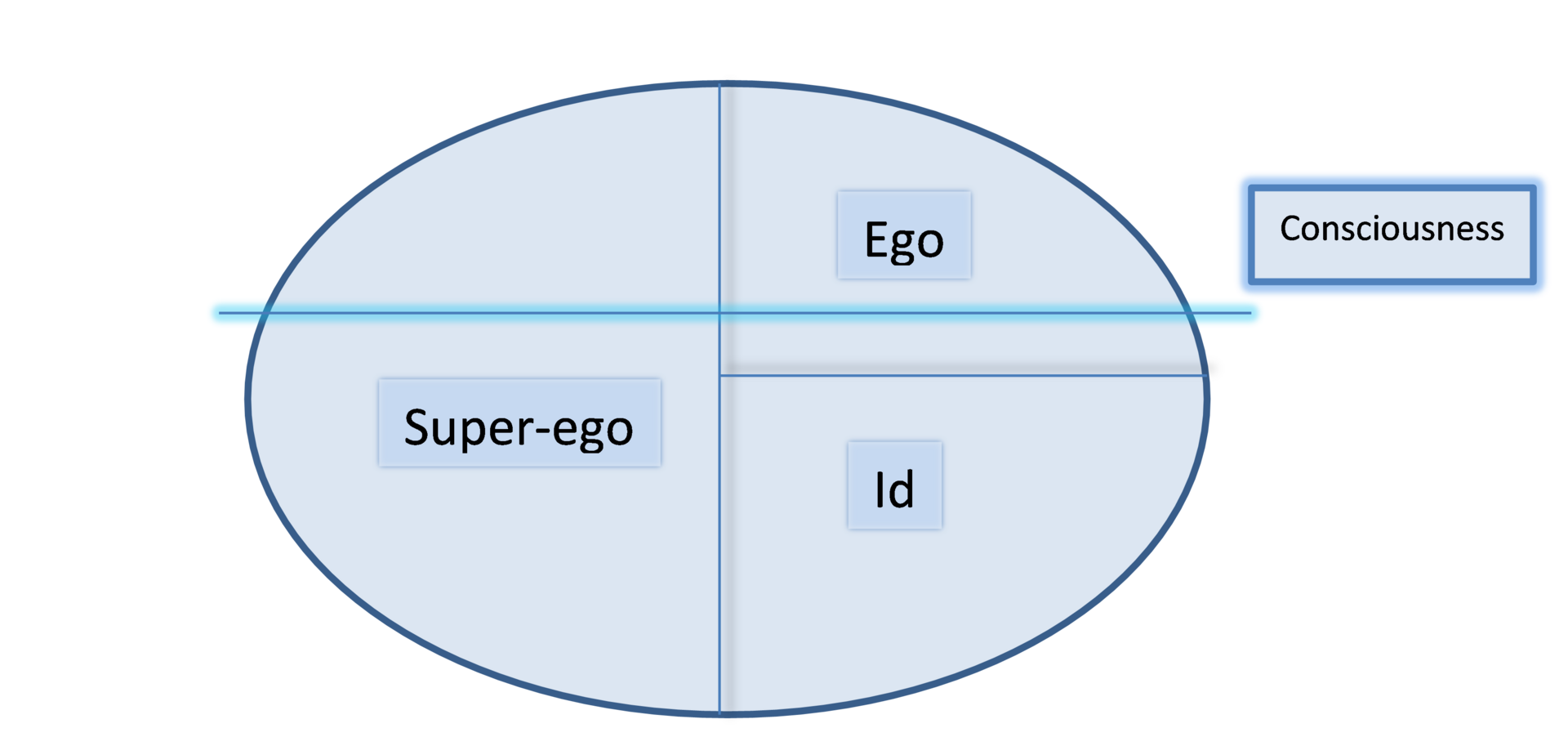
肛門期
Anal stage

☆ 肛門期とは、ジークムント・フロイトの性的心理発達論における第2段階であり、おおむね18か月から3歳までの間に起こる。この段階では、肛門が性的快感 をもたらす主要な部位となる。この経験の主な社会的背景はトイレトレーニングであり、肛門の快感が排便のコントロールと結び付けられるようになる。 フロイトの理論によると、人格は、幼少期を通じて性感帯に焦点を当てた段階を経て発達する。成人期の健全な人格は、これらの幼少期の段階がすべてうまく解 決されることに依存している。ある段階で問題が解決されない場合、固着が生じ、神経症傾向や心理的障害を引き起こす可能性がある。この段階での固着は、人格が硬直しすぎたり、逆に混乱しすぎたりする原因となる。
| The anal stage is
the second stage in Sigmund Freud's theory of psychosexual development,
taking place approximately between the ages of 18 months and three
years. In this stage, the anal erogenous zone becomes the primary focus
of the child's libidinal energy. The main social context for the
experience is the process of toilet training, where anal pleasure
becomes associated with the control of bowel movements. According to Freud's theory, personality is developed through a series of stages, focused on erogenous areas, throughout childhood.[1] A healthy personality in adulthood is dependent upon all of these childhood stages being resolved successfully. If issues are not resolved in a stage, then fixation can occur, potentially resulting in neurotic tendencies or psychological disturbance. A fixation at this stage can result in a personality that is too rigid or one that is too disordered. |
肛門期とは、ジークムント・フロイトの性的心理発達論における第2段階
であり、おおむね18か月から3歳までの間に起こる。この段階では、肛門が性的快感をもたらす主要な部位となる。この経験の主な社会的背景はトイレトレー
ニングであり、肛門の快感が排便のコントロールと結び付けられるようになる。 フロイトの理論によると、人格は、幼少期を通じて性感帯に焦点を当てた段階を経て発達する[1]。成人期の健全な人格は、これらの幼少期の段階がすべてう まく解決されることに依存している。ある段階で問題が解決されない場合、固着が生じ、神経症傾向や心理的障害を引き起こす可能性がある。この段階での固着 は、人格が硬直しすぎたり、逆に混乱しすぎたりする原因となる。 |
| General information The anal stage, in Freudian psychology, is the period of human development occurring at about one to three years of age.[2] Around this age, the child begins to toilet train, which brings about the child's fascination in the erogenous zone of the anus. The erogenous zone is focused on the bowel and bladder control. Therefore, Freud believed that the libido was mainly focused on controlling the bladder and bowel movements. The anal stage coincides with the start of the child's ability to control their anal sphincter, and therefore their ability to pass or withhold feces at will.[3] If the children during this stage can overcome the conflict it will result in a sense of accomplishment and independence.[4] |
一般的な情報 フロイト心理学における肛門期とは、生後1~3歳頃に起こる人間の発達段階のことである[2]。この年齢の子供たちはトイレトレーニングを始め、肛門の性 感帯に魅了されるようになる。性感帯は腸と膀胱のコントロールに焦点を当てている。そのため、フロイトはリビドーが主に膀胱と便意のコントロールに焦点を 当てていると信じていた。肛門期とは、子供が肛門括約筋をコントロールできるようになる時期と一致しており、そのため、便意を自分でコントロールしたり、 我慢したりできるようになる時期でもある[3]。この時期に子供たちが葛藤を克服できれば、達成感と自立感を得られる[4]。 |
| Conflict This is the second stage of Freud's psychosexual stages. This stage represents a conflict with the id, ego, and superego. The child is approached with this conflict with the parent's demands. A successful completion of this stage depends on how the parents interact with the child while toilet training.[5] If a parent praises the child and gives rewards for using the toilet properly and at the right times then the child will successfully go through the stage. However, if a parent ridicules and punishes a child while they are at this stage, the child can respond in negative ways.  Freud's id, ego and superego Parents' role As mentioned before the ability for the children to be successful in this stage is solely dependent upon their parents and the approach they use towards toilet training. Freud believed that parents should promote the use of toilet training with praise and rewards. The use of positive reinforcement after using the toilet at the appropriate times encourages positive outcomes. This will help reinforce the feeling that the child is capable of controlling their bladder.[6] The parents help make the outcome of this stage a positive experience which in turn will lead to a competent, productive, and creative adult. This stage is also important in the child's future relationships with authority. According to Freud's Psychosexual Theory, parents need to be very careful in how they react to their children during this sensitive stage. During this stage children test their parents, the authority figures, on how much power they really have as opposed to how much room the child has to make his or her own decisions.[7] |
葛藤 これはフロイトの精神性愛段階の第二段階である。この段階は、イド、自我、超自我との葛藤を表している。子供は親の要求とこの葛藤に直面する。この段階を うまく完了できるかどうかは、トイレトレーニング中の親の子供への対応方法による[5]。親が子供を褒めて、適切なタイミングでトイレを正しく使用した場 合に報酬を与えると、子供は順調にこの段階を通過できる。しかし、この段階にある子どもを親が嘲笑したり罰したりすると、子どもは否定的な反応を示す可能 性がある。  フロイトのイド、エゴ、超自我 親の役割 前述の通り、子どもがこの段階をうまく通過できるかどうかは、トイレトレーニングに対する親の関わり方次第である。フロイトは、トイレトレーニングを褒め てご褒美を与えることで促進すべきだと考えていた。適切なタイミングでトイレに行った後に褒美を与えるなど、ポジティブな強化を行うと、良い結果につなが ります。これにより、子供は自分の膀胱をコントロールできると感じられるようになります[6]。両親は、この段階をポジティブな経験にすることで、子供が 将来有能で生産的、創造的な大人になることを助けます。この段階は、子供が将来権威者と関わる上でも重要です。 フロイトの精神性愛理論によると、この繊細な段階において、親は子どもにどう反応するかについて細心の注意を払う必要がある。この段階では、子どもたち は、子ども自身が意思決定できる余地があるかということに対して、権威である親に、親が実際にどれだけの力を持っているかを試すことになる[7]。 |
| Anal-retentive personality Main article: Anal retentiveness Negative parent-child interactions in the anal stage, including early or harsh toilet training, can lead to the development of an anal-retentive personality. If the parents are too forceful or harsh in training the child to control their own bowel movements, the child may react by deliberately retaining their bowel movements in rebellion. They will form into an adult who hates mess, and is obsessively tidy, punctual, and respectful to authority.[8] These adults can sometimes be stubborn and be very careful with their money.[9][10] Anal-expulsive personality Main article: Anal expulsiveness Overly passive parent-child interactions in the anal stage lead to the development of an anal-expulsive personality.[11] Because the child's parents were inconsistent or neglectful in teaching the child to control their own bowel movements, the child may relieve themselves at inappropriate times and soil their pants in rebellion against using the toilet.[12] As adults, they will want to share things with their peers and give things away. They can sometimes be messy, disorganized, and rebellious. They may also be inconsiderate of others' feelings. |
肛門保持型人格 メイン記事:肛門保持型人格 肛門期における否定的な親子関係、例えばトイレトレーニングの早期開始や厳しすぎるトレーニングなどは、肛門保持型人格の発達につながる可能性がある。親 が子どもに対して排便をコントロールするよう強要したり、厳しくしつけたりしすぎると、子どもはわざと排便を我慢して反抗するという反応を示すことがあ る。彼らは、汚れ嫌いで、強迫的に清潔好きで、時間に正確で、権威を尊重する大人になる[8]。このような大人は、頑固で金銭管理に非常に慎重な場合があ る[9][10]。 肛門排便型人格 メイン記事: 肛門排便型人格 肛門期における過度に受動的な親子関係により、肛門排便型人格が形成される[11]。子供の両親が、子供に自分の便意をコントロールすることを教える上で 一貫性を欠いたり、怠慢だったりしたため、子供は不適切なタイミングで用を足したり、トイレを使うことへの反発からパンツを汚したりすることがある [12]。大人になると、彼らは仲間と物を共有したり、物を譲り合ったりしたがるようになる。彼らは時に散らかし屋だったり、無秩序だったり、反抗的だっ たりする。また、他人の気持ちを考慮しないこともある。 |
| Psychosexual development Oral stage Phallic stage Latency stage Genital stage |
心理的性発達 口腔期 ファルス期 潜伏期 生殖器期 |
| https://en.wikipedia.org/wiki/Anal_stage | |
リ ンク
文 献
そ の他の情報
Copyleft, CC, Mitzub'ixi Quq Chi'j, 1996-2099
☆
 ☆
☆